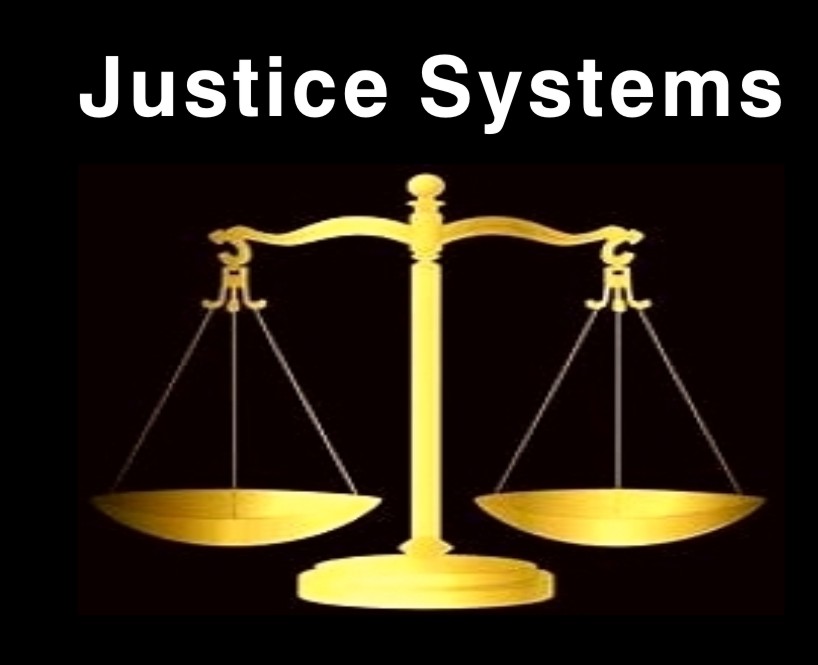
Category: Francesco Sforza
Human Rights Group “Human Rights Watch” Gives An Approving Nod To Italy
Posted by Peter Quennell
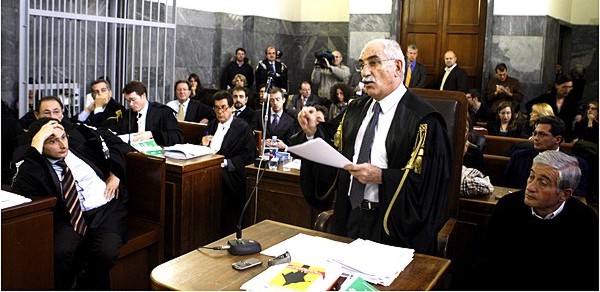
[Above: Armando Spataro, the chief prosecutor in the 2009 trial in Milan; CIA operatives all absent]
Human rights groups like Human Rights Watch and Amnesty International keep an eye on the Italian courts, as they do the courts of most countries.
When it comes to Italy, they rarely have anything to complain about. Italy has a firm high-profile police presence but when the playing field is level the Italian courts are known to be very fair and prison rates are among the world’s lowest.
Nothing is seen to be broken..
The same applies to the European Court of Human Rights in Strasbourg which receives mind-numbing numbers of spurious appeals from Italy (an unfortunate circumstance for Knox) which repeatedly jump the gun (as Knox’s appeal did) before the Italian legal process is over. But the ECHR only very rarely finds that Italian courts did anything wrong.
In an excellent report by the AP’s Colleen Barry (not our favorite reporter in Florence, but now we have hopes for her) the New York-based Human Rights Watch has just praised Italy for persevering against the CIA operatives who executed an example of extraordinary rendition - kidnapping for torture in a third country of suspected terrorists.
Cassation had just confirmed three of the guilty sentences among the 26 for American operatives earlier handed down:
“It is really a seminal case. It set a very important precedent that unfortunately has not been followed yet by any other countries,” said Judith Sunderland, senior Western Europe researcher for Human Rights Watch. “We certainly hold it as an example how a national judiciary can in fact get to the bottom of an unlawful rendition.”
The Obama administration renounced the Bush administration’s practice of extraordinary rendition, and neither the CIA or State Department seems to have done very much to help the CIA officers who were being prosecuted.
Alessia Sorgato, who was one of four court-appointed defense lawyers, complained the U.S. government had not responded to requests for help to defend their clients.
None of the court-appointed lawyers had any contact with their clients. U.S. officials only granted two of the defendants permission to seek their own counsel, toward the end of the trial…
Leader Robert Seldon Lady did possibly get some minor official help to disappear recently within the United States, but has since spoken out against the CIA and State Department bitterly. So did other CIA operatives.
At the same time, the Italian government (think Ministry of Justice) has been fairly passive, and allowed the courts to increasingly confirm the convictions, except for several Italian ones (they were declared military as was one American).
These outcomes from Cassation may not result in former CIA operatives ending up in Italian prisons. But life for perps on the run can be made hell worldwide under an Interpol Red Notice. So civil rights groups are not unhappy.
Amanda Knox, learn something.
[Below: human rights groups in Italy kept up pressure]
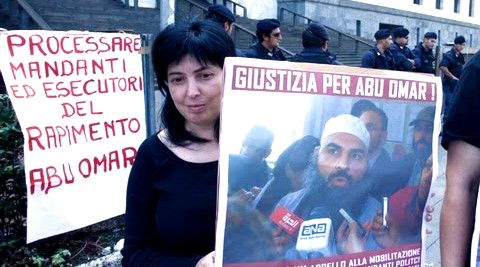
An Overview From Italy #3 Dr Michel Giuttari Speaks Out About The Trumped Up Florence Case
Posted by Machiavelli
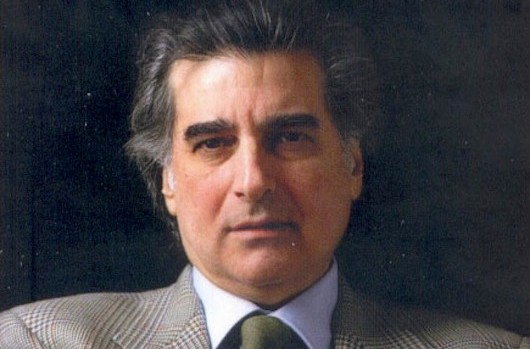
[Dr Michele Giuttari, former head of the Mobile Squad in Florenece and prominet authoer]
Dr Giuttari and Dr Mignini are connected because they both investigated the Monster of Florence case - and because a nasty case trumped up in Florence in retaliation has just been killed by the Supreme Court. .
The erratic Mario Spezi and his timid colleague the sniper from afar Doug Preston have blown up that case to gigantic proportions, as have the Knox and Sollecito forces, and most recently (very foolishly and ill-timed, as his claims may constitute contempt of court) Raffaele Sollecito himself.
Some important background can be found in Overview #2 and Comments here.
Michele Giuttari started his police career in the 1970s’ as a mobile squad detective in Calabria; after 15 years of “Calabrian ” experience he was appointed to the Anti-Mafia Division of Naples, and subsequently became the head of the Mobile Squad in Florence. During his Florentine service time, following investigation guidelines under the direction of prosecutor Piero Luigi Vigna, he produced a solution to the “˜Monster of Florence’ case, but also brought the investigation to an unexpected turning point.
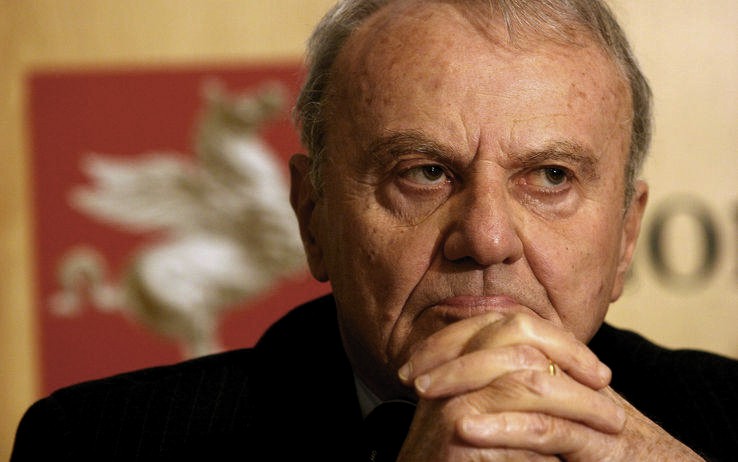
[Former Florence chief prosecutor Piero Luigi Vigna created the “monster of Florence” term]
As Vigna deduced, the MoF was not really one serial killer, but rather the manifestation of the killing activity carried on by a small group of people, at least three. In fact three people were found guilty for taking part to the murders; but both prosecutor and judges were not entirely satisfied: because there was evidence ““ so the court concluded ““ that someone else was involved too, who remained unknown.
The investigation into the death of Dr Francesco Narducci was opened in Perugia in 2005 as a routine cold case, because of Narducci’s wife’s and relatives’ doubts about the “official” version of his “accidental” death in Lake Trasimeno.
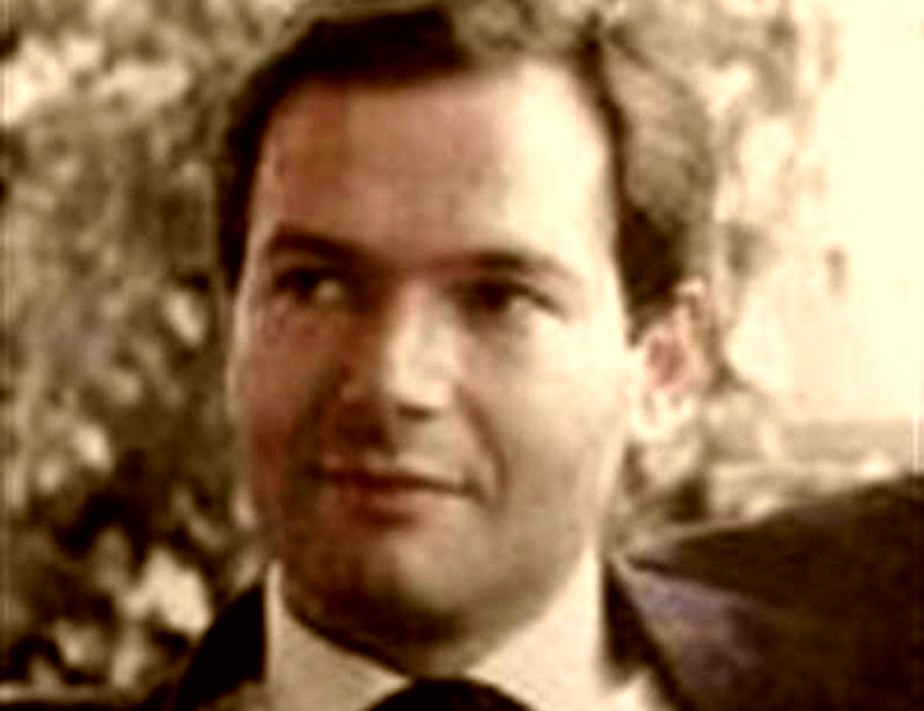
[Former Perugia doctor Francesco Narducci found drowned in Lake Trasimeno]
Points of contact between Narducci and the MoF emerged independently from two directions, from the Perugia investigation, and from Giuttari’s findings from the previous Florence investigation.
Crossed analysis with the data bank collected by Michele Giuttari showed that several people were common witnesses both in the Narducci and the MoF case, while many things in the Narducci case were not adding up (for example, the unburied body was found to have died by strangulation, not by drowning, his trachea and hyoid bone were crushed).
Something even more unexpected was that the investigation into the Narducci case revealed - and partly itself triggered - a network or other collateral crimes. A number of people were caught engaged in criminal activities with the purpose of plotting cover-ups and obstruction of justice on this cold case. Among them were law enforcement officers and lawyers.
But most surprising and peculiar, there was a fierce reaction from some magistrates among the Florence judiciary, in an attempt to stop the Perugia investigation.
The first wild accusations launched by a Florentine prosecutor against Perugia offices were proven false, so the most serious charges were dropped by a preliminary judge as obviously unfounded.
But a second wave of legal action followed, alleging that Giuttari and Mignini’s wiretapping recordings were false; this accusation was also proven false in a trial, as expert technicians demonstrated the authenticity of all material.
But after ignoring the objection about territorial competence the judge managed to let one accusation stand ““ that of abuse of office, a charge less serious than the previous ones, which was not formulated on points of facts but only on points of law ““ at the first degree trial.
After some years, this charge was canceled, as the courts finally declared the whole investigation illegitimate, and they nullified both the first degree trial, and the investigation and indictment itself.
A last attempt by the Florentine prosecution to further delay closure was ended by the recent, final Supreme Court verdict. Meanwhile, a couple of Florentine magistrates were successful in stopping the investigation into the Narducci case, for a total of seven years.
Unfortunately these happenings are not entirely new to the Italian judiciary. This one resembles other happenings ““ possibly more serious ““ that affected the system in recent Italian history (the most famous examples are the Elisa Claps, or the plots known as “Toghe Lucane” targeting known magistrates such as Luigi De Magistris and Henry John Woodcock).
The system shows symptoms of stress from the whole extreme political instability of the country, but so far it still manages to fiercely resist those drifts.
Michele Giuttari is also an author. Albeit he is not the top crime fiction novelist for sales in Italy (the Italian market has top-class masters in the genre), yet he is the top-selling Italian crime writer in the English speaking world. Curiously, the best-seller among all his titles published in Italy ““ the non-fiction book about the history of the true MoF investigation ““ is the only one in his books which has so far been rejected by American publishing houses.
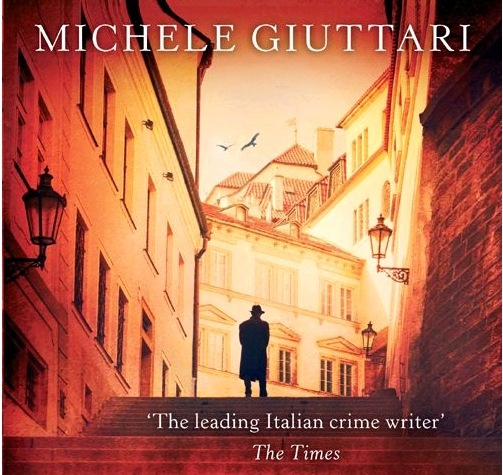
[The top-selling Michele Giuttari book, the non-fiction Il Mostro]
His last book bears the title “The Evil Dreams of Florence” [image of cover at bottom] and he might have chosen it as a metaphor of what he was drawn into by some people within the Florentine authorities and some in high positions.
After the final Supreme Court verdict on Feb 8., he posted a long comment about it in Italian on his Facebook page, in which he addresses his criticism mainly toward the head of police Antonio Manganelli .
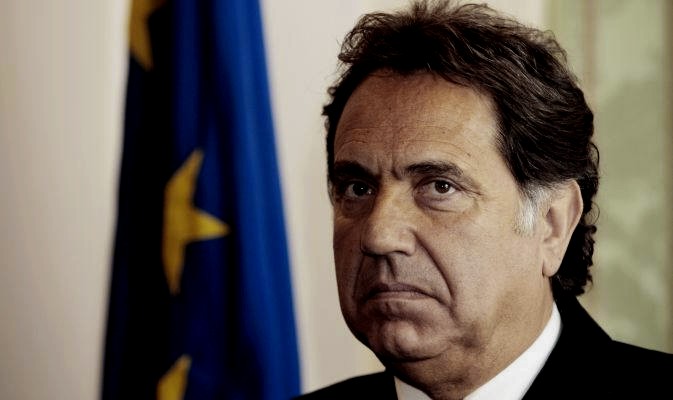
[Chief of Italy’s civil police Antonio Manganelli]
I agree with Giuttari about the shame police chief Antonio Manganelli brought on his administration through the terrible handling of the case of the Genoa G8 violence. In 2001 some police corps attacked and tortured peaceful demonstrators in Genoa, following political inclinations, in what was called by Amnesty International “the most serious violation of civil rights committed by police forces in Western Europe” after WW2.
The leader of the Democrats (the main opposition party) at the time called it “state violence with a fascist mark”. Recently Cassation definitively called the event a “shame”, and prominent journalist Marco Travaglio wrote an open letter to Antonio Manganelli, saying “I beg you to kick out from your police force the authors of such henious crimes” .
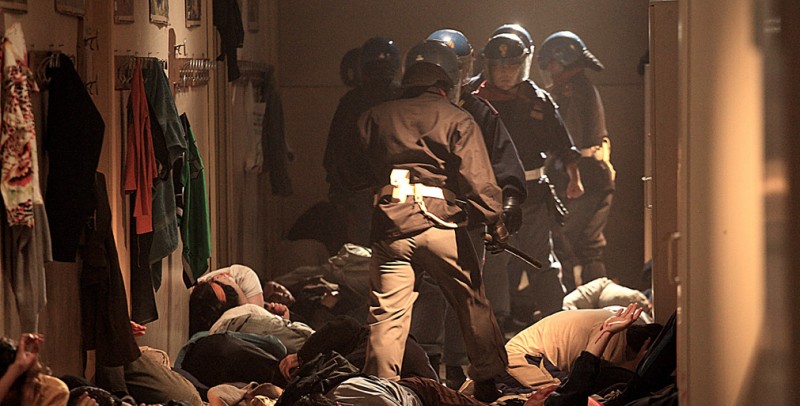
[Police violence against peaceful protestors at Group of 8 meeting Genoa 2001]
Yet Manganelli (ironically his name means “batons” in Italian, and the Diaz School night assault is now remembered as “la notte dei manganelli”) ““ a man who apparently has the quality of being friends with many high-profile politics ““ had chosen to “help” them, to defend and protect from prosecution the proven authors of political violence, while at the same time, apparently he didn’t care about what was going on in Florence and quietly pulled a curtain of silence on a “politically uncomfortable” issue.
I add that Manganelli was recently found to be the most paid public employee of the Italian State (with a wage of 621,000 euros per year).
Dr Giuttari expressed his outrage against Manganelli in a comment on his Facebook page which I translate below.
He makes this statement on behalf of Dr Mignini as well.
Seven years of deafening silence by the head of State Police Manganelli
On February 8. 2013 the Supreme Court of Cassation, by declaring them inadmissible, put the final seal on the investigations that the Florentine prosecution had “illegitimately” carried on against myself, on the basis of mere accusatory theories about absurdly formulized charges of abuse of office which, allegedly, I committed concurring together with Perugia Public Minister Giuliano Mignini in the course of official activity, during my enactment of the written orders of a PM [supervising magistrate] at the time when I was responsible for a special team which had been created by the head of the police through a Ministry decree.
And this [Supreme Court] decision confirms, in a certain and incontrovertible way, on the one hand the “instrumental” nature of the judicial events, and on the other hand the fact that we should not ever have been investigated; and, what’s worse, that we should not ever have been tried in Florence by magistrates who weren’t impartial at all: and this is exactly what Cassation has asserted, addressing the investigators with a clear message, even if they did it by using the available legal formula of territorial incompetence (functional rectius)!
So ended a case of Italian miscarriage of justice, which, besides causing damages to we the defendants, it also caused ““ and this is even more serious and absolutely unforgivable ““ the stopping in 2006 of the ongoing investigation into the death of the medical doctor Francesco Narducci in Lake Trasimeno, which was believed to be connected to the serial murders of couples around Florence (the so-called monster of Florence).It was seven long years of bitterness. Seven long years of blocked investigation. Seven long years of denial of justice to the victims’ relatives.
Seven long years during which the head of State Police held to deontologically [ethically] reprehensible behavior, which was especially serious since we are talking about a man [Manganelli] supposed to be an institutional point of reference for many people who put their lives at risk on a daily basis ““ who was appointed to occupy a top post (by the way, as we recently learned, a financially very, very well paid post), and he simply abandoned to his fate one police officer [myself] who had a professional history not inferior to his own, though not to his predecessor who held the same post before him.
This officer ““ leaving aside the solving of the monster of Florence case ““ was
(1) honored in the fight against the “˜ndrangheta [the Calabrian mafia] (on July 10. 2009 the Chief Prosecutor of Reggio Calabria declared publicly that Giuttari as a detective “created a turning point in the history of fight against “˜ndrangheta”);
(2) honored in the fight against the camorra (when responsible for the judiciary police department of the Anti-Mafia Division of Naples, I was appointed on request of the national Anti-mafia prosecutor Bruno Siclari for travel to South America for an important and dangerous investigation about an international drug traffic and an impressive series of murders);
(3) honored in the fight against the Cosa Nostra, and in particular the investigation of the 1993 mafia massacres of Florence, Rome and Milan (chief prosecutor Vigna, as he concluded the preliminary investigation, sent a letter to the head of the Anti-mafia Division ““ letter #8/95, sent on 2.2.1995 ““ where he stressed the officer’s important contribution);
I could go on.
They were all “pure” investigation , with no contribution from mafia turncoats or cooperators!
And what about the head of the state police?
He didn’t do what he was supposed to in his function as the police chief:
(1) protect his officer, from risks including those deriving from the important police activities accomplished; answer ““ or make someone answer for his office ““ the explanatory letters that were sent to him, very detailed letters which had a judicial corroboration today (letters were sent directly to him on 2.20.2010 and 5.20. 2010);
(2) protect him from professional and economical damage (for example by paying in advance, as was his duty, the legal expenses) since he knew very well that the officer operated in an institutional role, in the name of and on behalf of his administration.
He remained deaf to the various requests which were forwarded by the Minister of Interior himself at that time, he didn’t do anything. Inexplicably, he ignored everything.
And further, I cannot keep quiet about the punishments against the cooperators in my working team.
None of them was allowed to go back to the Mobile Squad, they were all appointed to totally unrewarding duties such as guard work. All these humiliations were offenses to the personal dignity of hard working people, as humble servants of the state let alone being police officers. And moreover it was true professional competences that were lost.
A deafening silence.
I might go on but I want to recall instead what Manganelli did ““ even at the cost of his own public exposure ““ in favor of those colleagues who were involved in the Genoa G8 events, the saddest page in the history of Italian police to my memory!
They were actually promoted in their rank and functions! I think about what he did for them, even paying thousands and thousands of euros in advance for their legal expenses and for the provisional damage payments, as reported in newspapers (Il Secolo XIX of 5. 22. 2010, p.6).
A deafening silence.
These of the head of police are conducts reasonably leading anyone to conclude that he used a double standard, he considered his employees, involved in different cases, as divided between “sons and stepsons” (the Genoa case ended with definitive convictions of all on all charges, the case where I was involved was shown to be a judicial flop).
Or even better put (it is incorrect to call his behavior a “double standard” or a different treatment for “sons and stepsons”) it was actually two opposite policies, on situations that were opposites to each other.
No, that’s really not good at all. That’s not how it should be.
And you should not ignore your own employees while you listen to those who are criminally indicted, you have your personal secretary call to fix a hearing at the Ministry with them, and you listen to them while they complain against others who were investigating them by written orders of the Public Minister ! (in the trial papers ““ no longer officially secret ““ there are phone call recordings with unequivocal meaning).
the head of police Manganelli was utterly disappointing to me, since he revealed himself to be light-years distant from the man and the officer I happened to know at the beginning of the eighties, before his drift into pernicious “political” things.
Hopefully, soon or later, a parliament inquiry on the Perugia and Florence judicial events will be appointed, to search into the behavior of some institutional personalities. I’ll be ready to offer my contribution to that.
And I’m sure Dr. Mignini will do the same too.
I conclude with a twofold question: Will the head of police now feel some guil, at least morally as a person? Doesn’t he think he should respond ““ if not to an ordinary court ““ to the most severe tribunal of his own conscience, within his internal judgment?
Michele Giuttari, ex-head of the Florence Mobile Squad
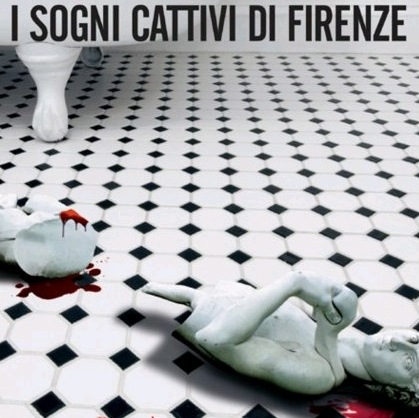
[Cover of Michele Gittari’s book “The Evil Dreams of Florence “]
